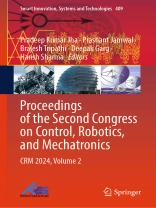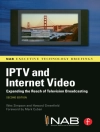This book features high-quality research papers presented at the International Conference of Mechanical and Robotic Engineering “Congress on Control, Robotics, and Mechatronics” (CRM 2024), jointly organized by SR University, Warangal, India, and Soft Computing Research Society, India, during 3–4 February 2024. This book discusses the topics such as combustion and fuels, controls and dynamics, fluid mechanics, I.C. engines and automobile engineering, machine design, mechatronics, rotor dynamics, solid mechanics, thermodynamics and combustion engineering, composite material, aerodynamics, aerial vehicles, missiles and robots, automatic design and manufacturing, artificial intelligence, unmanned aerial vehicles, autonomous robotic vehicles, evolutionary robotics, humanoids, hardware architecture, industrial robotics, intelligent control systems, microsensors and actuators, multi-robots systems, neural decoding algorithms, neural networks for mobile robots, space robotics, control theory and applications, model predictive control, variable structure control, and decentralized control.
เกี่ยวกับผู้แต่ง
Pradeep Kumar Jha, Ph.D. Professor, Department of Mechanical & Industrial Engineering, IIT Roorkee. Dr. Pradeep Kumar Jha is presently working as Professor in the Department of Mechanical and Industrial Engineering. After receiving bachelor’s and master’s degree from M.I.T. Muzaffarpur, Bihar, and National Institute of Foundry and Forge Technology, Ranchi, Jharkhand, in the year 1995 and 1999 respectively, Professor Jha obtained his Ph.D. degree from IIT Kharagpur in the year 2004. Prior to joining as Assistant Professor in IIT Roorkee in the year 2007, he also served as Sr. Lecturer and Assistant Professor at IIT Guwahati and IIT (ISM) Dhanbad respectively. Prof. Jha specializes in the area of Manufacturing Engineering, with special emphasis on casting operations, modeling and simulation of continuous casting operations and metal matrix composites. He has to his credit more than 100 publications in international and national journals and conferences and two book chapters.
Prof. Prashant K. Jamwal earned Ph.D. degree and a post-doctoral fellowship from the University of Auckland, New Zealand. Earlier he had obtained M. Tech. from I.I.T., India, securing first position in all the disciplines and B.Tech. from MNREC, Allahabad, India. Presently, he is working as Professor at the school of engineering and design sciences, Nazarbayev University (NU), Astana, Kazakhstan, and as Adjunct Professor at University of Canberra, Australia. He is actively pursuing research in robotics and artificial intelligence, multi-objective evolutionary optimization, biomedical engineering, and renewable energy. Over the past decade, he has applied his research in the development of medical robots for rehabilitation and surgical applications besides developing improved algorithms for cancer data analytics. He is working as Editor for the International journal of bio-mechatronics and bio-robotics and as Reviewer to quite a few international journals and conferences of repute. Prof. Jamwal led many international funded research projects and has so far received research grants worth more than $9 million including prestigious World Bank grants.
Dr. Brajesh Tripathi received his Ph.D. in Mechanical Engineering in 2008 from Indian Institute of Technology Kharagpur, India. He was Post-doctorate Fellow at the Michigan State University, USA, for two and half years and worked on a US government sponsored project on Computational Fluid Dynamics. Presently, he holds Associate Professor positions at Rajasthan Technical University Kota. Dr. Triapthi received 06 research grants for various sponsored projects from GNIDA, NAL, BRNS, MHRD, and AICTE. He has guided 08 Ph.Ds. and 26 M.Tech. scholars. He has published more than 130 research articles in peer-reviewed international journals and conferences. Dr. Tripathi’s primary interest is working on practical problems using fundamental concepts of Computational Fluid Dynamics especially in diesel engine, heating, ventilation and air-conditioning, turbulent flows, unconventional energy systems, etc.
Prof. Deepak Garg is Ph.D. in Computer Science with specialization in Efficient Algorithm Design. With 25 years of experience he has worked as Professor and Dean, School of Computer Science at Thapar Institute of Engineering and Technology, Patiala, and Bennett University, Greater Noida. He is Distinguished Professor in Artificial Intelligence and known as one of the top voices in the country on AI. He is regular Blogger in Times of India with a nickname of ‘Breaking Shackles’ and writes about Higher Education landscape and AI. He is on the Advisory Committee of AIRAWAT, Super Computing Mission of Govt. of India to create a 1 Exaflop backbone infrastructure for the country. He has represented on various Committees at NAAC, NBA, UGC, and AICTE. Working with Startup Founders is his passion, he serves on tech advisory board of Drishya.ai, Byte XL, and Global AI Hub. He is the only CAC ABET Commissioner from the country and has served as PEV from last six years. He has been in the Board of Governors of IEEE Education Society, USA. He served as Chair IEEE Computer Society, India Council, and IEEE Education Society, India Council. He is on Academic Councils, Board of Studies of various institutions. He has 160 publications with 1600 Citations, h-index 20, and i10 index 41.
Harish Sharma is Associate professor at Rajasthan Technical University, Kota, in Department of Computer Science & Engineering. He has worked at Vardhaman Mahaveer Open University Kota and Government Engineering College Jhalawar. He received his B.Tech. and M.Tech. degrees in Computer Engg. from Govt. Engineering College, Kota, and Rajasthan Technical University, Kota, in 2003 and 2009 respectively. He obtained his Ph.D. from ABV-Indian Institute of Information Technology and Management, Gwalior, India. He is Secretary and one of the founder members of Soft Computing Research Society of India. He is Lifetime Member of Cryptology Research Society of India, ISI, Kolkata. He is Associate Editor of “International Journal of Swarm Intelligence (IJSI)” published by Inderscience. He has also edited special issues of the many reputed journals like “Memetic Computing”, “Journal of Experimental and Theoretical Artificial Intelligence”, “Evolutionary Intelligence”, etc. His primary area of interest is nature inspired optimization techniques. He has contributed in more than 125 papers published in various international journals and conferences.












